Tankless vs Tank Water Heaters: Which is Right for Your Murfreesboro Home?
When you're looking for a new water heater for your Murfreesboro home, there are two main options to consider: tank water heaters and tankless water heaters. Each type has its own advantages and considerations, including cost-effectiveness, maintenance requirements, installation, and lifespan. Our comprehensive guide will help you understand the differences between these two options so you can make an informed decision that suits your needs best. If you require any further assistance in making your decision, feel free to reach out to us!

Here's how a storage tank water heater works
A storage tank water heater is a common type of water heating system. It consists of a large tank that is filled with water and heated using a heating element or a burner located at the bottom of the tank. The heating element or burner is powered by electricity, natural gas, propane, or oil, depending on the type of fuel used in the building. When the water in the tank is heated to the desired temperature, it is ready to be used for various purposes such as showering, washing dishes, or doing laundry. As hot water is drawn from the tank, cold water enters the tank to replace it. This cold water is then heated by the heating element or burner to maintain a constant supply of hot water in the tank. Storage tank water heaters typically have a thermostat that allows the user to adjust the temperature of the water according to their preference. Although storage tank water heaters are efficient in providing a continuous supply of hot water, they do have some drawbacks. One of the main disadvantages is that they can run out of hot water if the tank is emptied before it has a chance to fill up again and heat the incoming cold water. Additionally, the standby energy loss can occur as the water in the tank cools down, requiring the heating element or burner to regularly kick in and maintain the desired temperature.

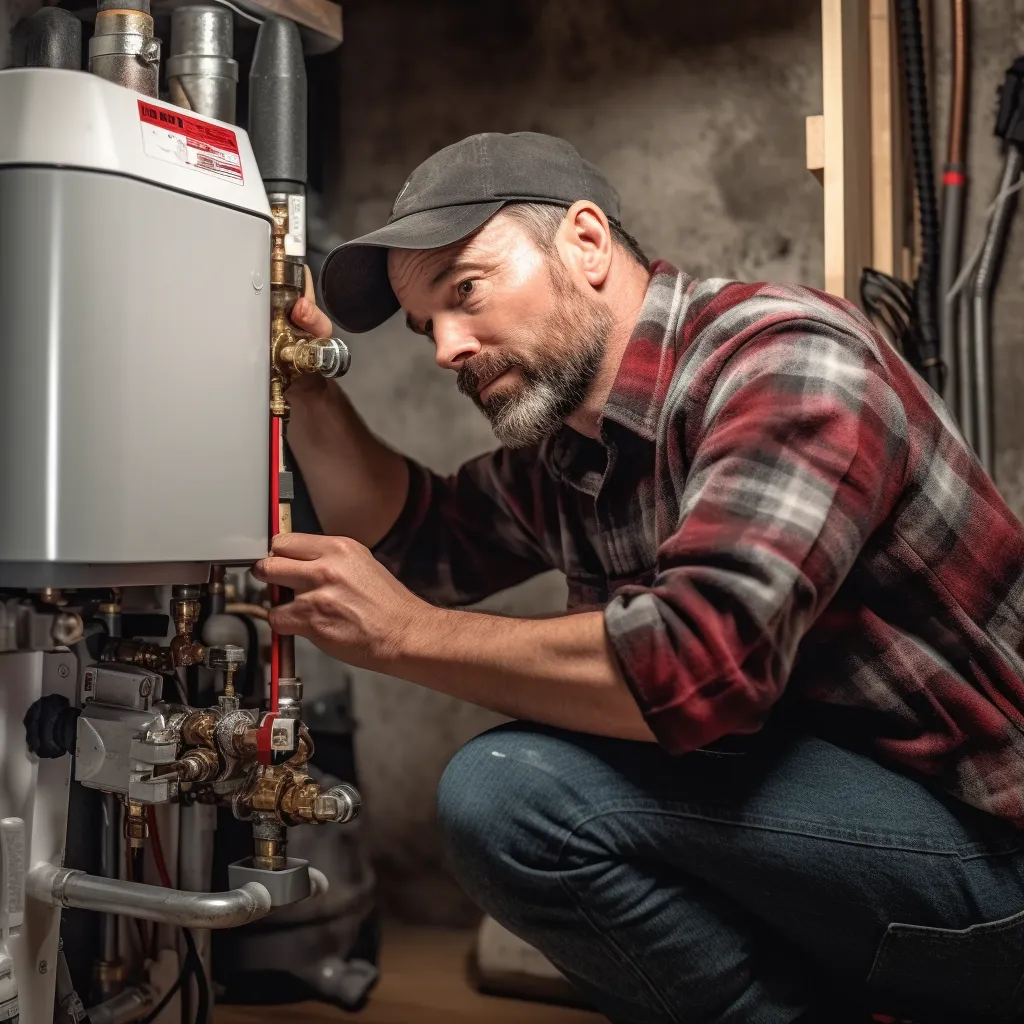
Benefits of a tank water heater
Tank water heaters have several benefits:
One of the main advantages is their ability to provide a large volume of hot water. Tank water heaters come in different sizes, allowing homeowners to choose the right capacity based on their needs.
Another benefit of tank water heaters is their relatively lower upfront cost compared to other types of water heaters. They are more affordable to purchase and install, making them a popular choice among homeowners on a budget.
Tank water heaters are easy to maintain and repair. With proper care and regular maintenance, they can provide reliable hot water for many years.
If an issue does occur, repairs are often straightforward and less expensive than with other types of water heaters. Tank water heaters are also known for their durability. With a typical lifespan of 10-15 years, they provide long-lasting performance and value for homeowners.
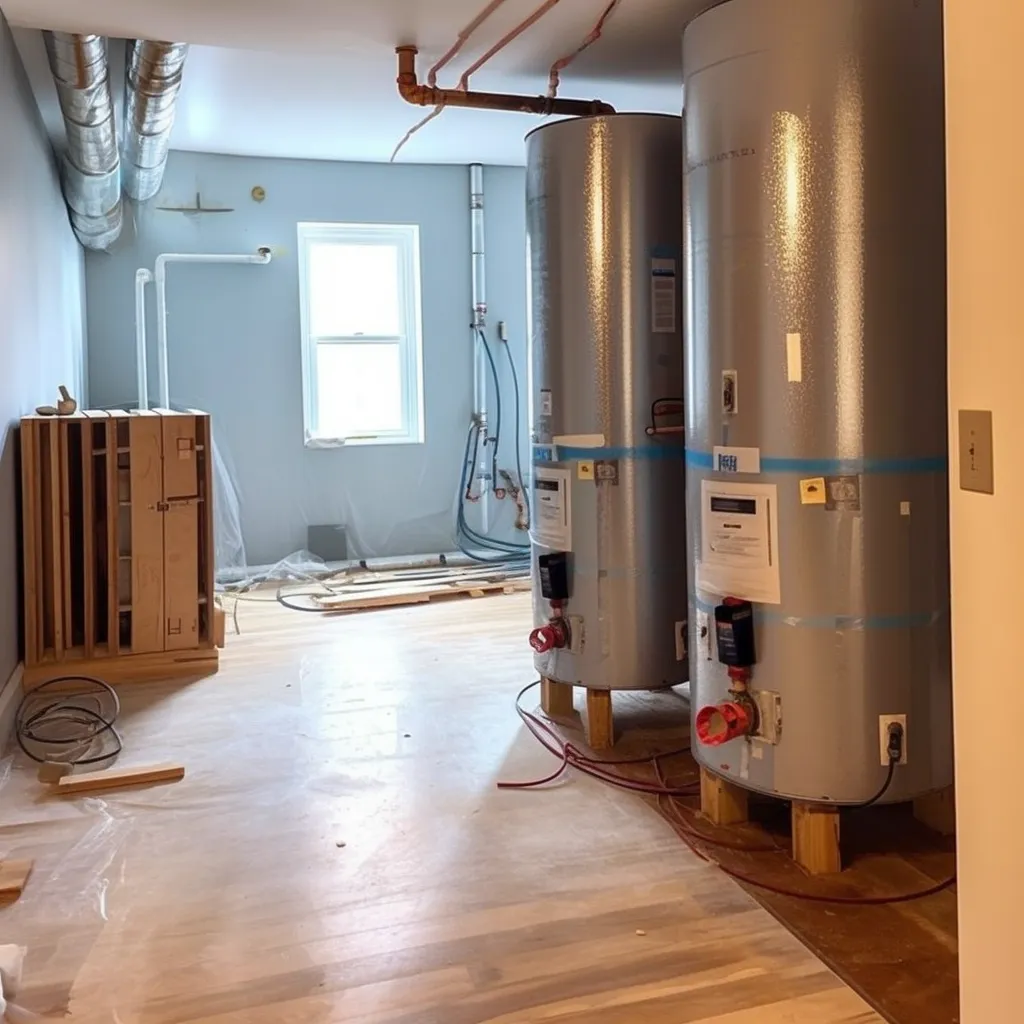
What are the downsides of a tank water heater?
There are several drawbacks associated with tank water heaters:
One major disadvantage is their limited capacity. Tank water heaters typically come in standard sizes, which means they have a finite amount of hot water available at any given time. This can be a problem for larger households or for homes that require a higher volume of hot water, such as those with multiple bathrooms or appliances.
Tank water heaters can take a significant amount of time to heat up a new supply of water once the existing supply has been depleted. This can result in a delay in getting hot water when it is needed.
Another drawback of tank water heaters is their continuous energy consumption. Even when a hot water tap is not in use, the tank heater must keep the stored water hot, which can lead to energy wastage and higher utility bills.
Tank water heaters have a limited lifespan and often require regular maintenance and eventual replacement. Over time, the tank can corrode, leading to leaks and other issues that may necessitate a costly water heater replacement.
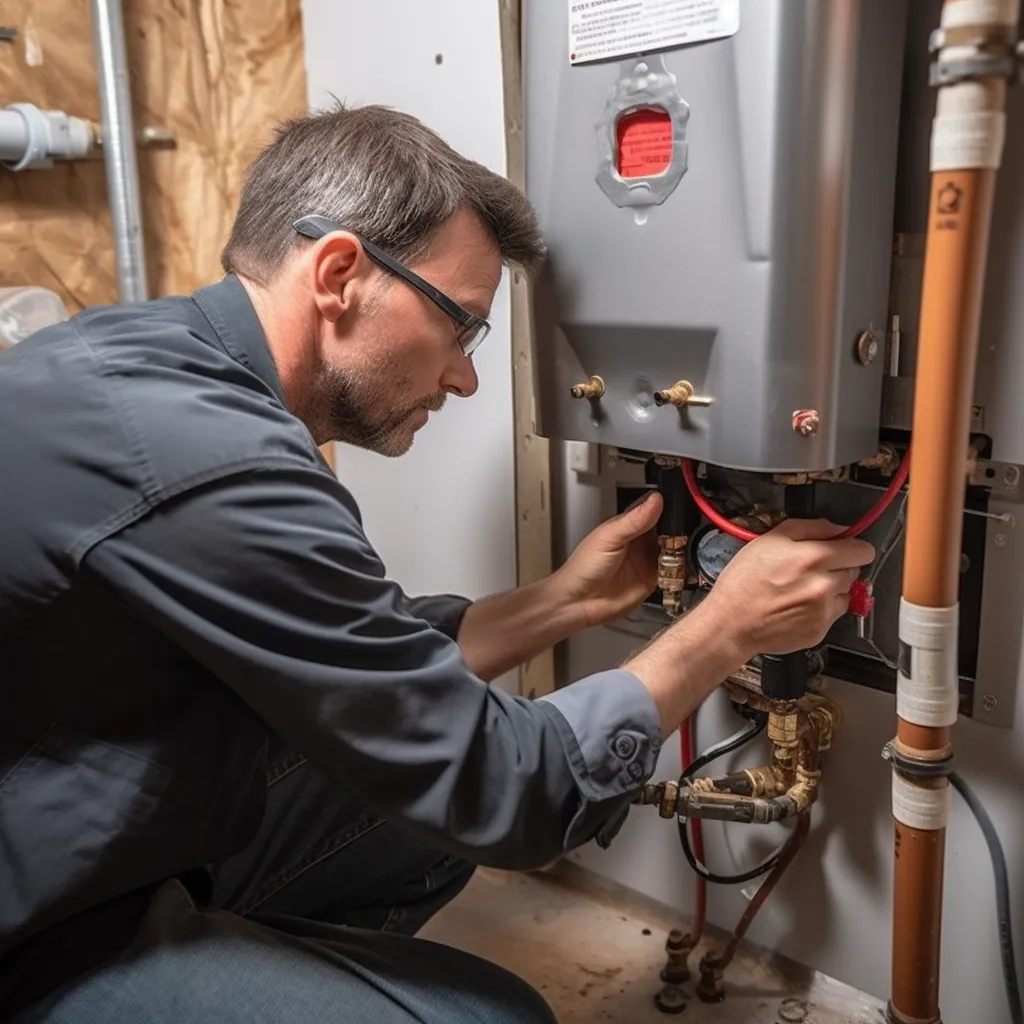
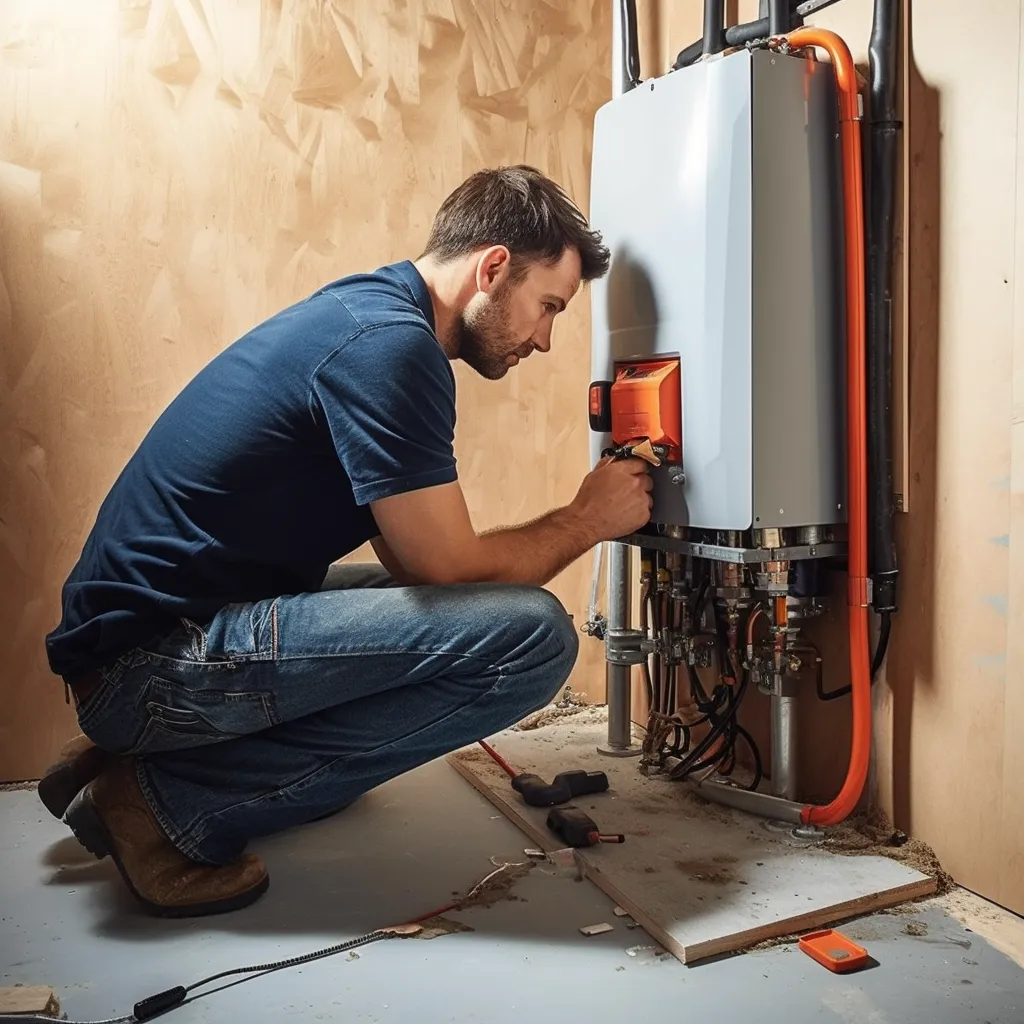
Here's how a tankless water heater works
Consider the benefits of tankless hot water heaters. These innovative units provide an ideal solution for on-demand hot water. Unlike traditional models, tankless heaters heat water as it flows through the unit, eliminating the need for a bulky storage tank. This means you can enjoy instant hot water whenever you need it. The way tankless water heaters work is quite simple. When you turn on the hot water faucet, cold water enters the unit and passes through a heat exchanger. The heat exchanger rapidly heats the water, allowing you to receive hot water directly from the faucet without experiencing any delay. Say goodbye to waiting for the water to heat up and enjoy the convenience of immediate hot water. Consider upgrading to a tankless hot water heater for your Murfreesboro home. With its on-demand hot water supply, you'll never have to worry about running out of hot water again. Experience the efficiency and convenience of tankless water heaters for all your hot water needs.

What are the benefits of a tankless water heater?
Tankless water heaters are becoming increasingly popular due to the numerous benefits they offer:
One major advantage is their energy efficiency. Unlike traditional water heaters that constantly heat and store a large volume of water, tankless water heaters only heat water as it is needed. This results in significant energy savings, as there is no standby heat loss.
Another benefit of tankless water heaters is their compact size. Traditional water heaters take up a considerable amount of space, whereas tankless models are much smaller and can be mounted on a wall, freeing up valuable floor space. This makes them an ideal option for small homes or apartments.
Tankless water heaters provide a continuous supply of hot water. With traditional water heaters, you may run out of hot water if multiple appliances or fixtures are being used simultaneously. However, tankless models heat water on-demand, ensuring a never-ending supply of hot water. This is particularly advantageous for larger households or households with high hot water demand.
Tankless water heaters have a longer lifespan compared to traditional water heaters. While traditional units usually last around 10-15 years, tankless models can last up to 20 years with proper maintenance. This not only saves money on replacement costs but also reduces the environmental impact of disposing of old water heaters.
Tankless water heaters offer more flexibility in terms of installation. They can be installed in various locations throughout the house, including closer to the point of use, minimizing the time it takes for hot water to reach the faucet or shower.
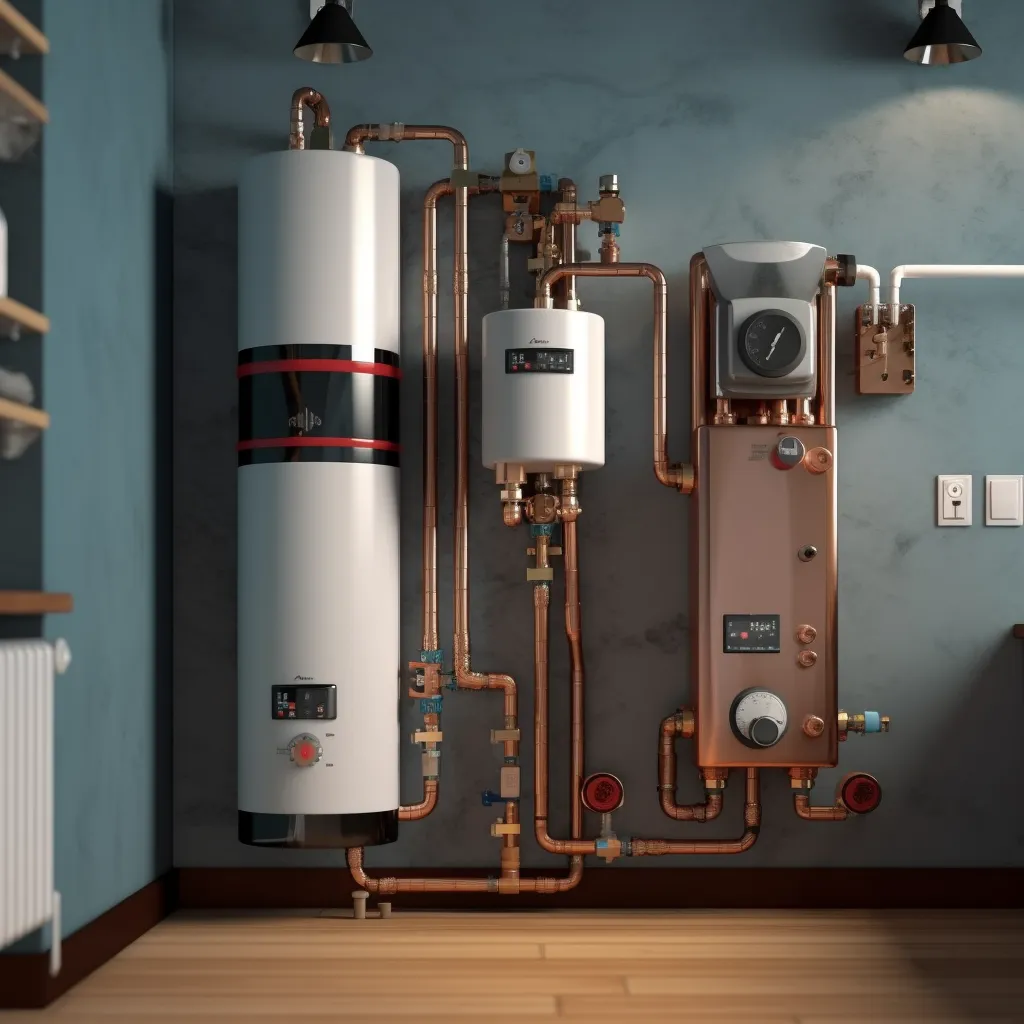
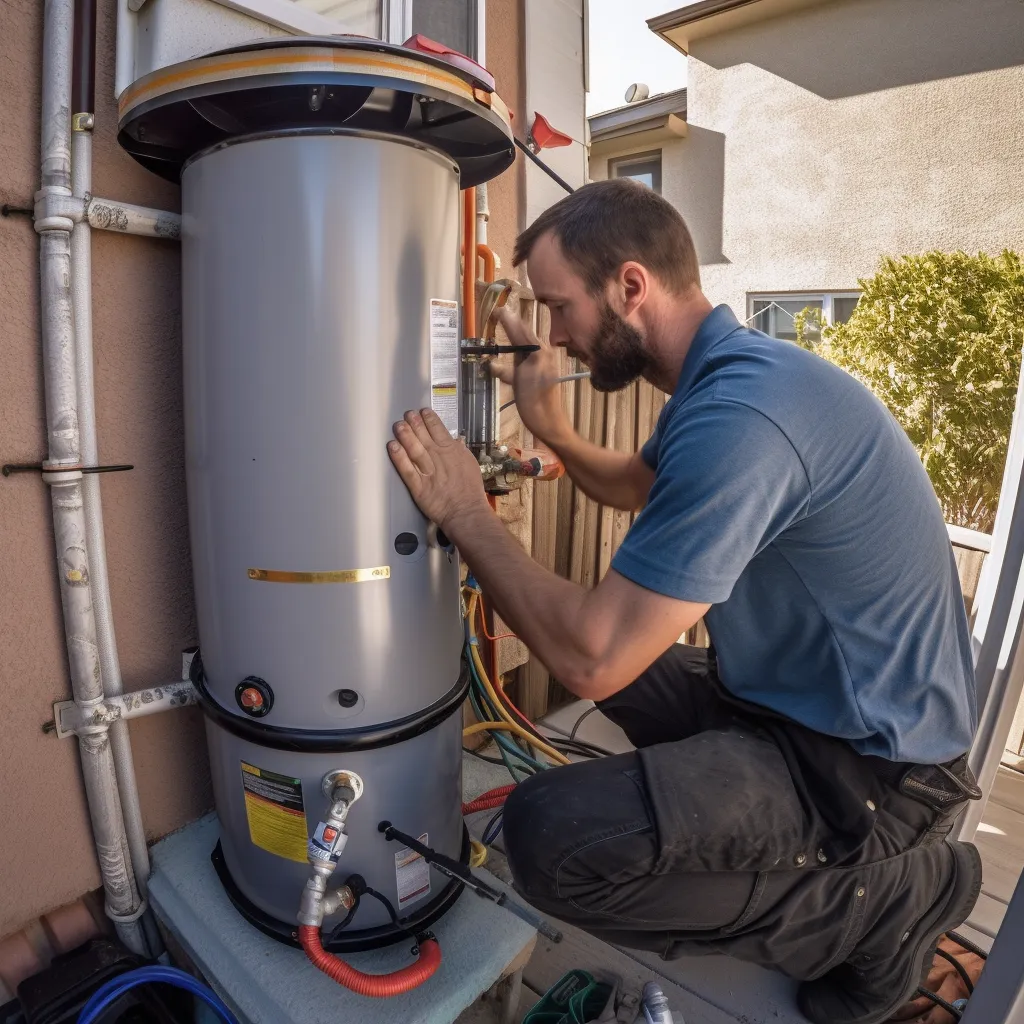
What are the disadvantages of a tankless water heater?
While there are plenty of advantages to using a tankless water heater, it is important to consider its disadvantages as well:
One of the main drawbacks is the upfront cost. Tankless water heaters tend to be more expensive to purchase and install compared to traditional tank water heaters.
If you are switching from a tank water heater to a tankless one, you may need to modify your existing electrical or plumbing systems, which can further add to the overall cost.
Another disadvantage is the limited flow rate. Tankless water heaters provide hot water on demand, but they do have limitations when it comes to the amount of hot water they can produce at once. If you have a large household with multiple showers or appliances running simultaneously, a single tankless water heater may not be able to keep up with the demand, leading to a decreased flow rate and potential cold water bursts.
Maintenance can also be more complex with tankless water heaters. While traditional tank water heaters require periodic flushing to remove sediment buildup, tankless units may need regular maintenance such as descaling to prevent mineral deposits from affecting performance. This can be time-consuming and may require professional assistance.
Power outages can be a challenge with tankless water heaters. Unlike tank water heaters that store hot water, tankless units rely on a power source to heat up the water as it passes through. During a power outage, you will not have access to hot water, which can be inconvenient, especially in colder climates.
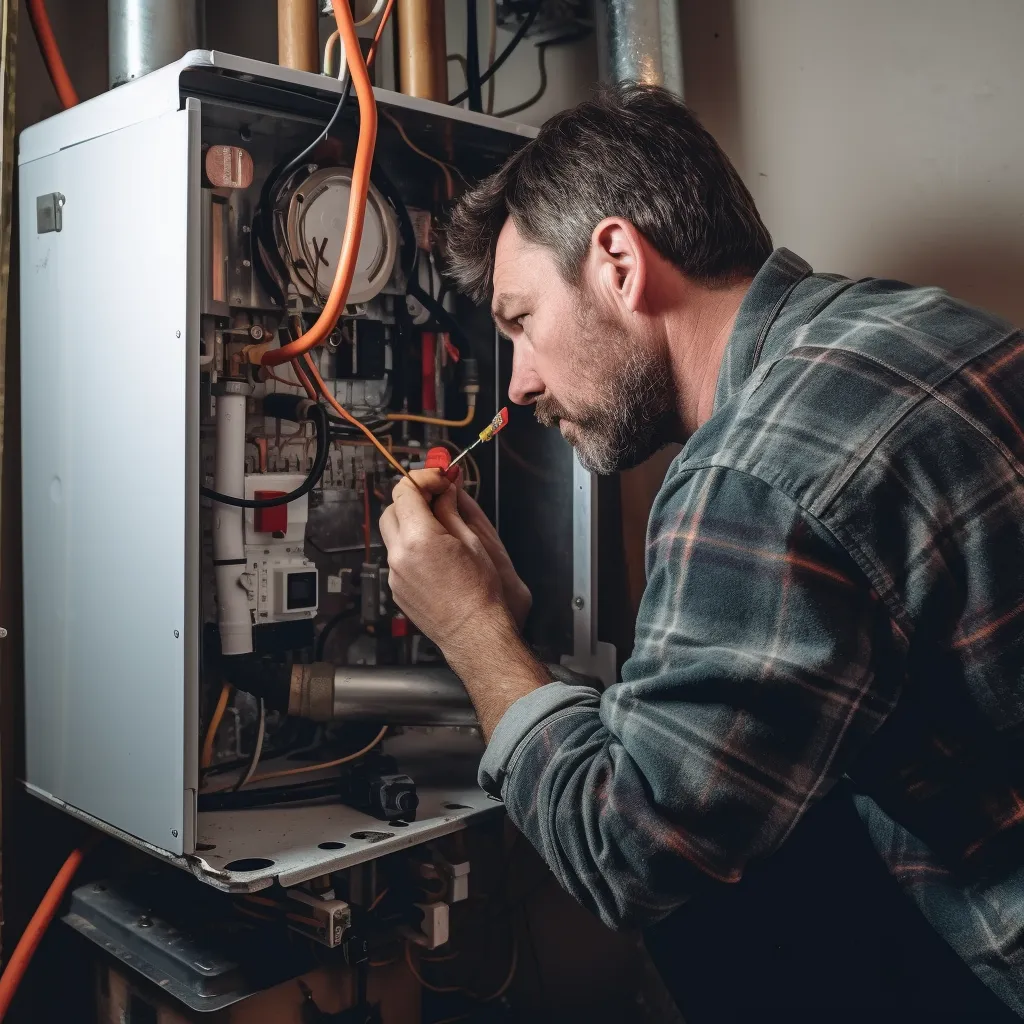
How energy-efficient are tank water heaters?
When it comes to energy efficiency, storage tank water heaters have a mixed reputation. While they are a commonly used and reliable option for heating water, their efficiency can vary depending on the model and its specifications. Traditional storage tank water heaters work by constantly heating and maintaining a supply of hot water in a large tank. This means that the water is kept hot even when it is not being used, leading to standby heat loss. As a result, energy is continuously being consumed to keep the water at a set temperature. However, the energy efficiency of storage tank water heaters has improved over the years with the development of better insulation and more efficient heating elements. High-efficiency models are designed to minimize standby heat loss and reduce the amount of energy required to keep the water hot. Today, newer storage tank water heaters offer various energy-saving features such as improved insulation, heat traps, and advanced burner technology. These features help to reduce energy consumption and minimize heat loss. It is important to note that while storage tank water heaters have made strides in energy efficiency, they are generally not as efficient as tankless water heaters. Tankless water heaters heat water on-demand, only when it is needed, eliminating the need for a large storage tank and reducing standby heat loss.
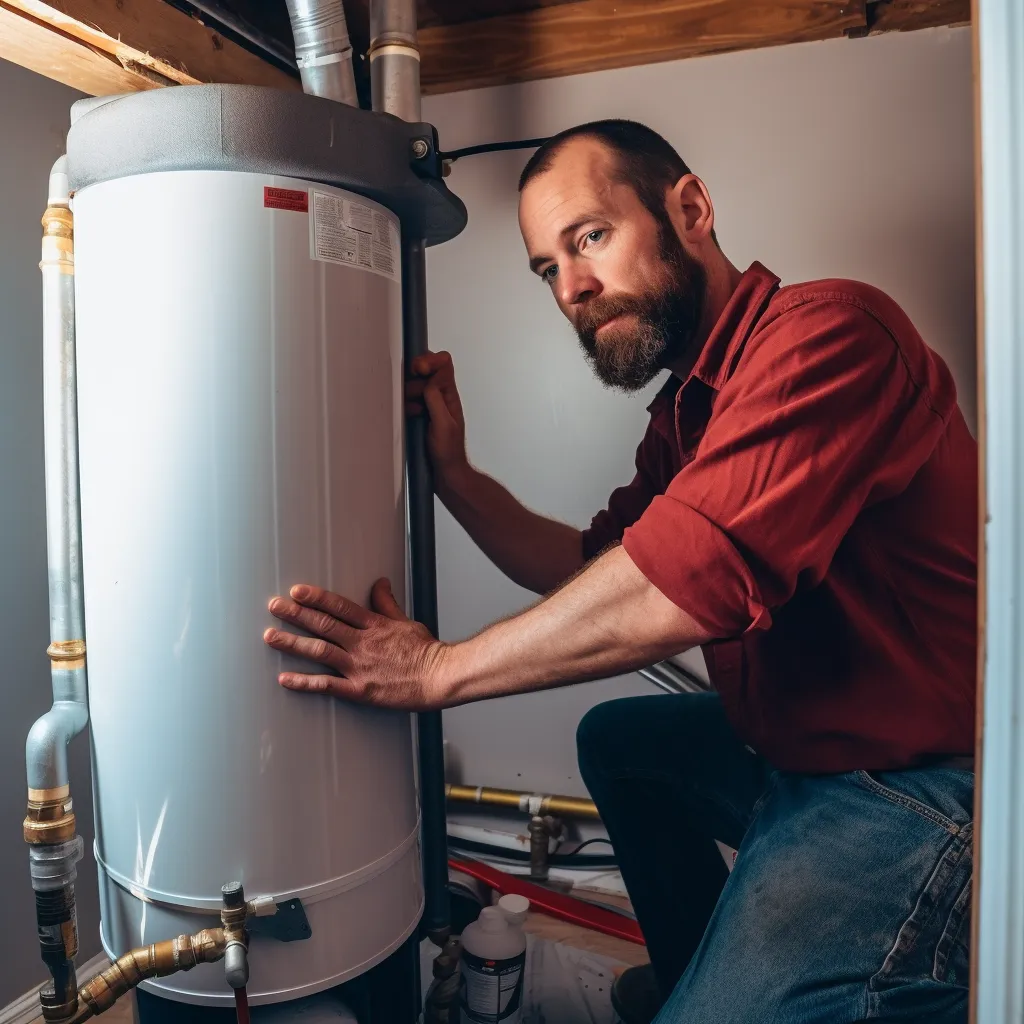
How energy-efficient are tankless water heaters?
Tankless water heaters are known for their energy efficiency. Compared to traditional tank water heaters, which constantly heat and store a large volume of water, tankless water heaters only heat water as it is needed. This means that they consume less energy overall, resulting in lower energy bills and reduced greenhouse gas emissions. Additionally, tankless water heaters have a longer lifespan than tank water heaters, reducing waste and the need for frequent replacements. In Murfreesboro, homeowners looking to upgrade their water heating system can consider tankless water heaters as a cost-effective and environmentally friendly option.
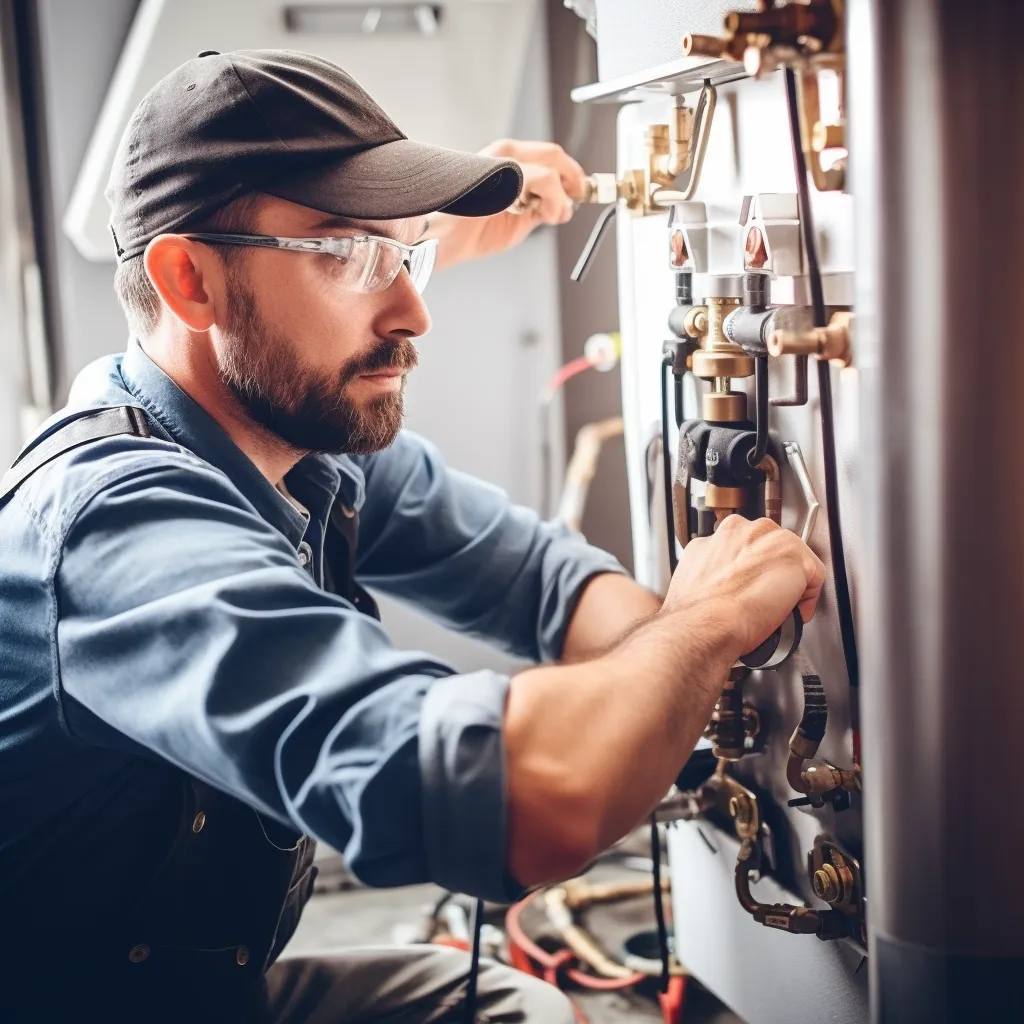
What does it cost to buy and install a tank heater?
If you're considering a water heater upgrade, it's essential to have an idea of the cost for both purchasing and installing a tank water heater. The price can vary depending on several factors, including the size and efficiency of the unit, as well as any additional work required during installation. On average, the cost to buy a tank water heater can range from $300 to $1,500, with higher-end models costing more. Keep in mind that more expensive units often come with increased energy efficiency and warranties. When it comes to installation, it's recommended to hire a professional plumber to ensure a proper and safe setup. The installation cost can also vary based on factors such as the complexity of the project, the location of the heater, and any necessary modifications to your existing plumbing system. Typically, installation expenses can range from $500 to $1,500, depending on the scope of work required. This cost may include labor, materials, permits, and any necessary adjustments to meet local building codes. It's worth noting that investing in a quality tank water heater and professional installation can save you money in the long run through improved energy efficiency and reduced maintenance.
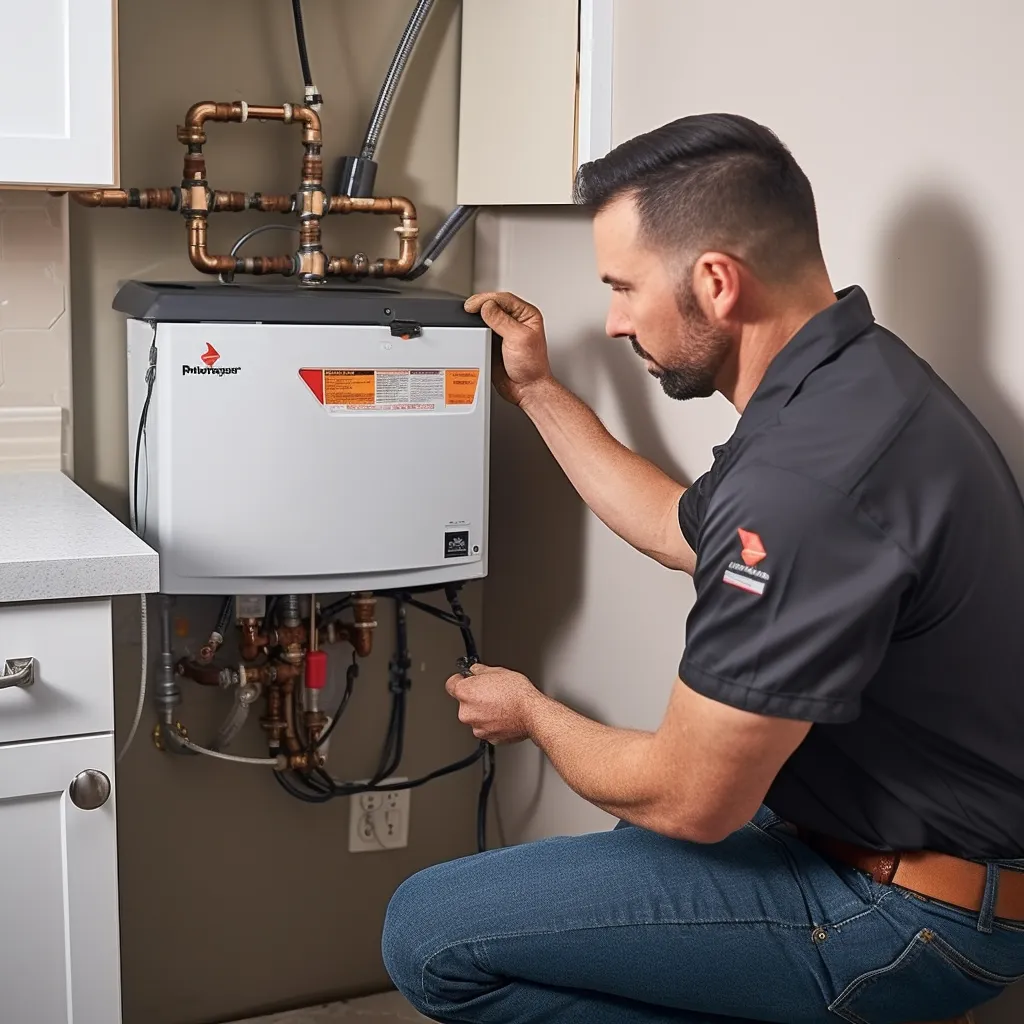
What does it cost to buy and install a tankless water heater?
Tankless water heaters can vary in price, depending on factors such as the brand, model, and features you choose. On average, the cost of a tankless water heater can range from $500 to $2,500 or more. This price includes the unit itself, any necessary accessories, and the installation labor. Higher-end models with more advanced features tend to be more expensive. When it comes to installation, it is essential to hire a professional plumber or contractor who specializes in tankless water heater installations. They will have the experience and expertise necessary to ensure the unit is properly installed and functioning correctly. In most cases, the cost of installation will be included in the overall price of purchasing a tankless water heater. While the initial cost of a tankless water heater may be higher than a traditional storage tank water heater, there are several factors to consider. Tankless water heaters are more energy-efficient, as they only heat water as it is needed, rather than continuously heating a large volume of water in a storage tank. This can result in significant savings on your energy bills over time. Additionally, tankless water heaters have a longer lifespan than storage tank water heaters, with an average lifespan of 20 years or more compared to 10-15 years for storage tank models. This means you may save on replacement and maintenance costs in the long run. If you are interested in purchasing and installing a tankless water heater, it is recommended to get quotes from multiple suppliers and contractors to compare prices and ensure you are getting the best deal. Furthermore, you can inquire about any available rebates or incentives that may help offset the cost of purchasing and installing a tankless water heater in your area.
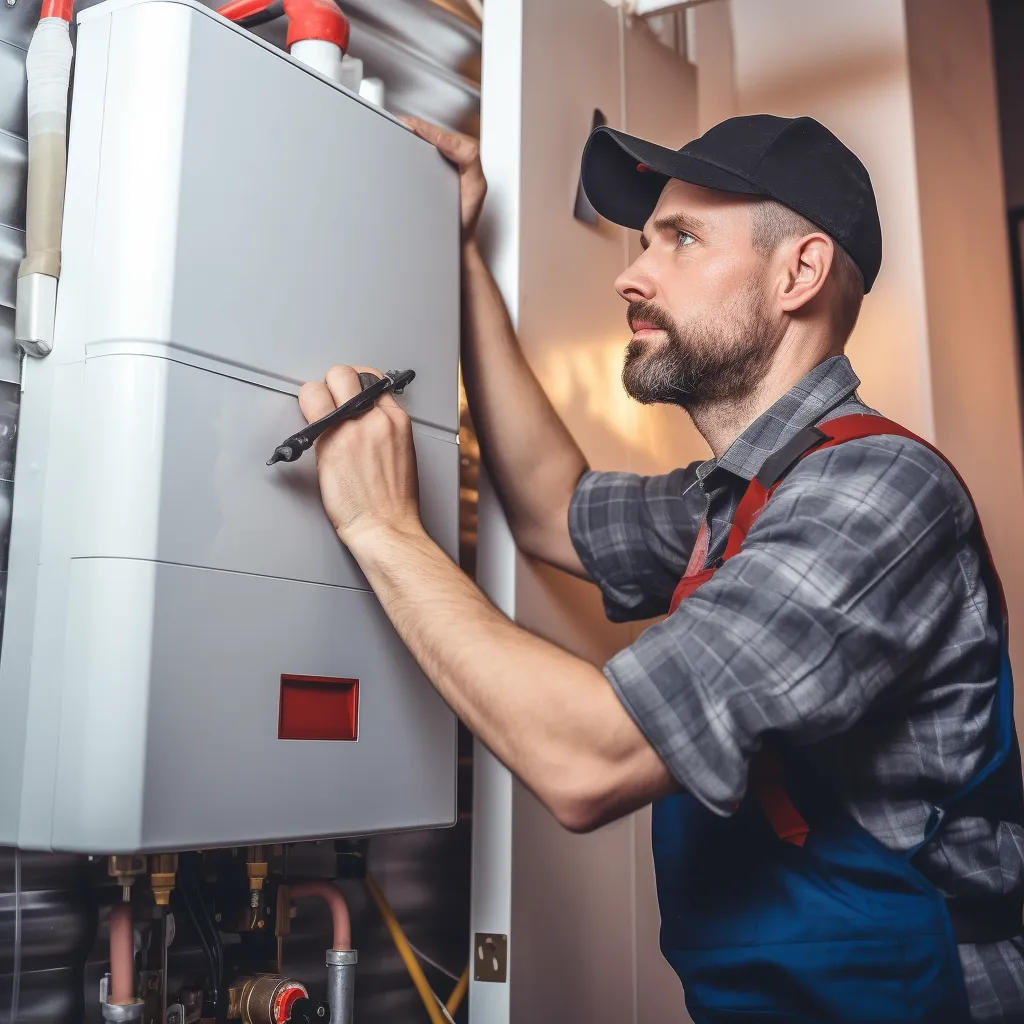
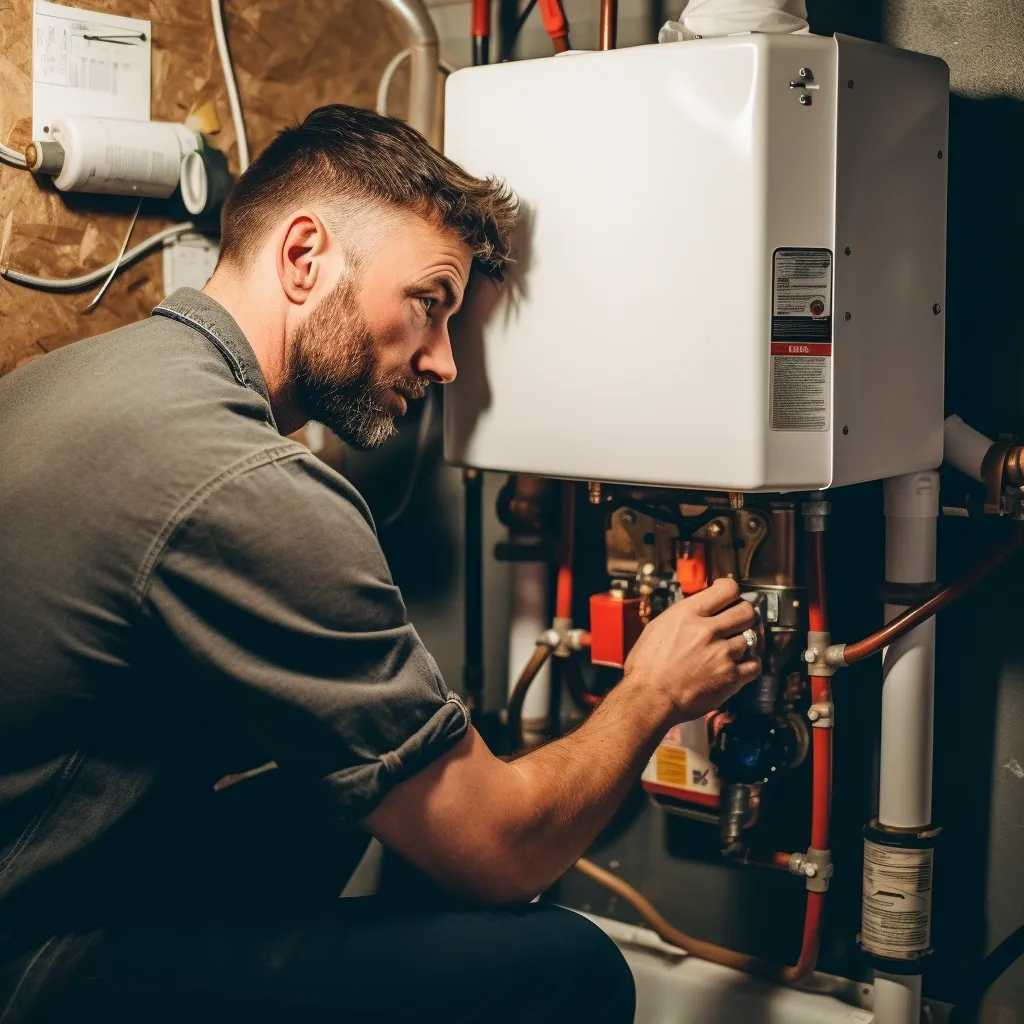
What are some common tank water heater maintenance issues?
When it comes to maintenance issues with storage tank water heaters, there are a few common problems that homeowners may encounter. These issues can often be resolved with regular maintenance or professional assistance.
Sediment buildup: Over time, sediment and mineral deposits can accumulate at the bottom of the tank. This can lead to decreased heating efficiency and even cause the tank to overheat. Flushing the tank annually can help to remove this sediment and improve the overall performance of the water heater.
Leaking: Water leaks can occur for various reasons, such as a faulty pressure relief valve, loose connections, or a deteriorated tank. It is important to address leaks promptly, as they can lead to water damage and increased energy consumption. In some cases, a leaking tank may require replacement.
Pilot light issues: If the pilot light goes out or fails to stay lit, it can prevent the water heater from producing hot water. The most common reasons for pilot light problems include a faulty thermocouple or a clogged pilot orifice. It is recommended to have a professional technician inspect and repair these issues.
Inadequate heating: If the hot water in your home is not reaching the desired temperature or if it runs out quickly, it could indicate a problem with the heating elements or thermostat. These components may need to be replaced to restore the proper functioning of the water heater.
Strange noises: Unusual noises, such as popping or rumbling sounds, can be a sign of sediment buildup or a failing heating element. Regular maintenance, such as flushing the tank and inspecting the heating elements, can help prevent these noises.
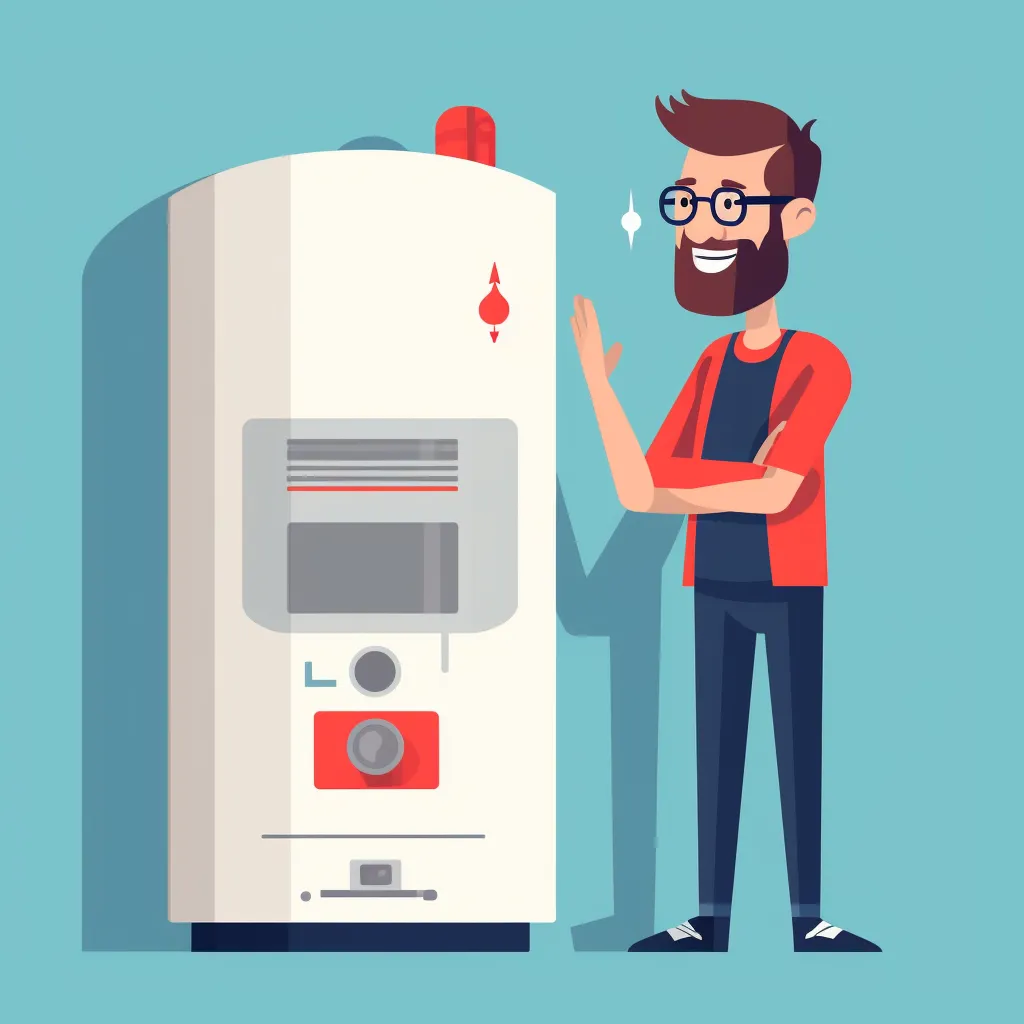
What are some common tankless water heater maintenance issues?
Tankless water heaters have become increasingly popular for their energy efficiency and endless supply of hot water. However, like any other household appliance, they require regular maintenance to ensure optimal performance. Here are some common tankless water heater maintenance issues you should be aware of:
Hard Water Problems: Hard water contains high levels of minerals like calcium and magnesium, which can accumulate inside the tankless water heater. Over time, these mineral deposits can restrict water flow, reduce heating efficiency, and even cause the unit to malfunction. That's why it's important to flush the tankless water heater regularly to remove the built-up scale.
Clogged Venting System: The venting system of a tankless water heater is responsible for removing combustion gases safely out of your home. However, debris, such as leaves, insects, or bird nests, can clog the venting pipes, inhibiting proper airflow and causing the unit to shut down. It's crucial to inspect and clean the venting system periodically to prevent any blockage.
Improper Installation: Improper installation can lead to various issues with a tankless water heater. For instance, if the unit is not sized correctly for your household's hot water demands, it may struggle to meet your needs effectively. Additionally, incorrect venting or gas line installation can result in inefficient operation and potential safety hazards. It's best to have a professional plumber install your tankless water heater to ensure proper setup.
Lack of Regular Maintenance: Neglecting regular maintenance can significantly shorten the lifespan of your tankless water heater. These units require descaling, filter cleaning or replacement, and inspection of electrical connections and components. Skipping these essential maintenance tasks can result in reduced efficiency, increased energy consumption, system failure, and costly repairs.
Ignition Failure: Tankless water heaters rely on an ignition system to ignite the burner and heat the water. Ignition failure can occur due to a variety of reasons, such as dirty or faulty ignition components, gas line issues, or electrical problems. Regular inspection and cleaning of the ignition system can help prevent such issues and ensure reliable operation.
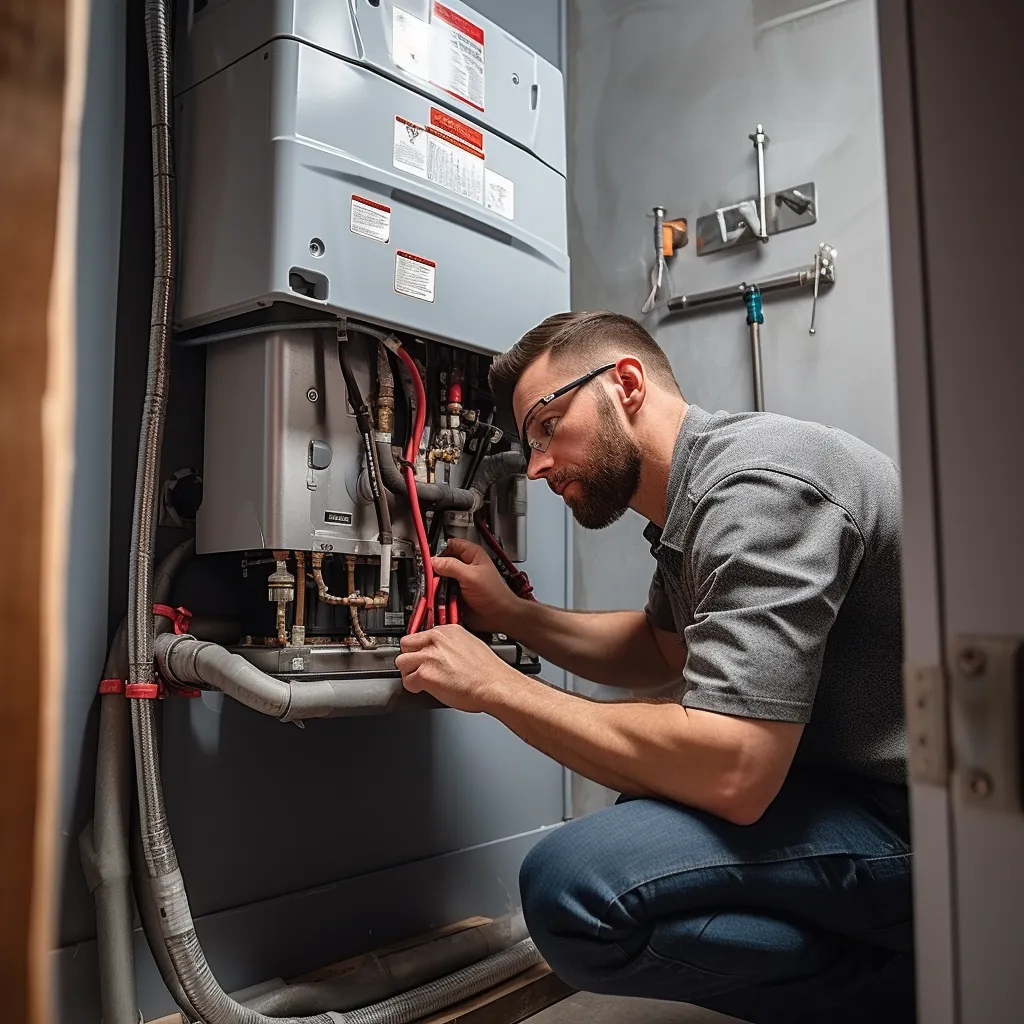
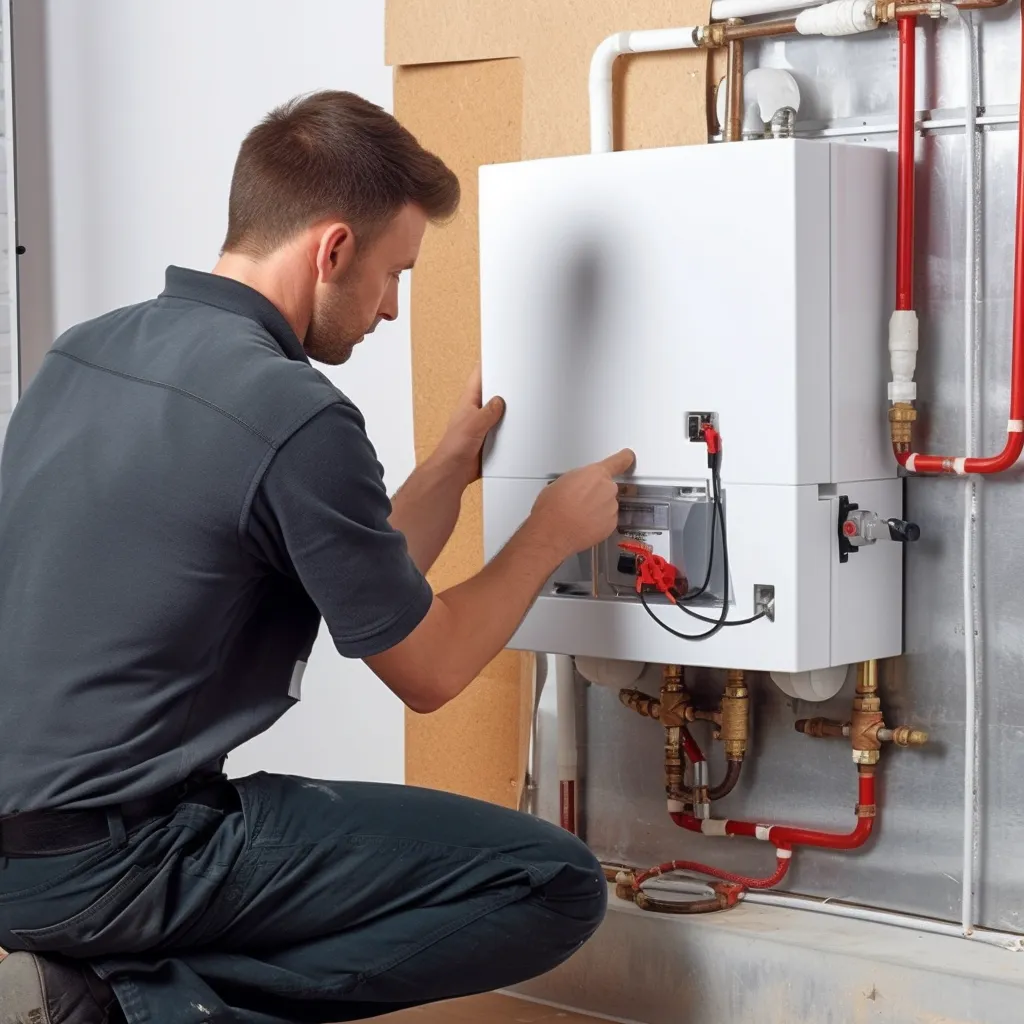
How long do tank water heaters last?
The lifespan of a tank water heater can vary depending on several factors. On average, a well-maintained tank water heater can last anywhere from 8 to 12 years. However, some tanks may start to experience issues or show signs of wear and tear after only 5 or 6 years, while others may continue to function properly for up to 15 years or more. Regular maintenance and proper usage can help extend the lifespan of a tank water heater. In some cases, water heaters may require repairs or replacement before they reach their expected lifespan, especially if they have not been properly maintained or if there is a sudden failure. If your water heater is approaching the end of its lifespan or is in need of frequent repairs, it may be time to consider a water heater replacement.
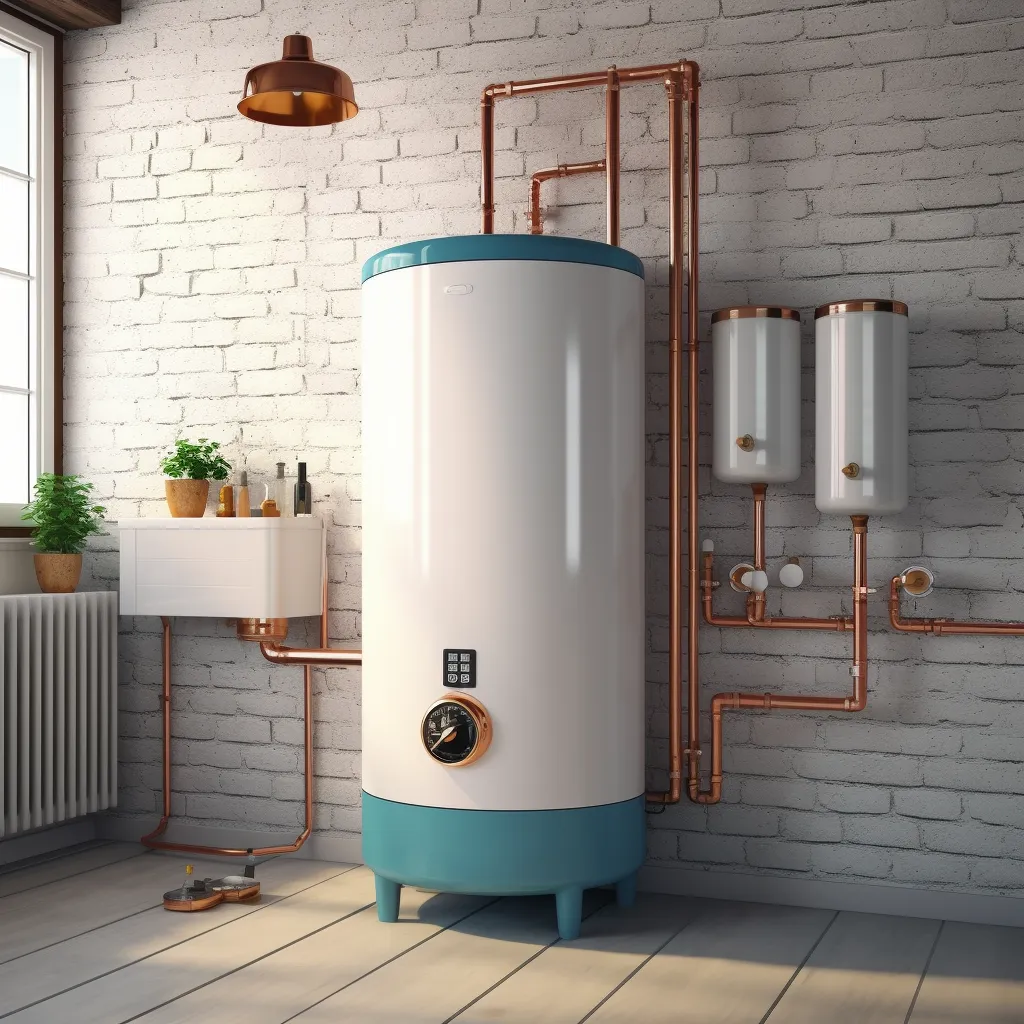
How long do tankless water heaters last?
A tankless water heater typically has a longer lifespan compared to traditional tank-style water heaters. While conventional units may last around 10-15 years, tankless water heaters can last up to 20 years or even more if properly maintained. The extended lifespan is due to their design, which eliminates the risk of tank corrosion and other issues associated with storage tanks. With regular maintenance and proper care, a tankless water heater can provide reliable hot water for many years.
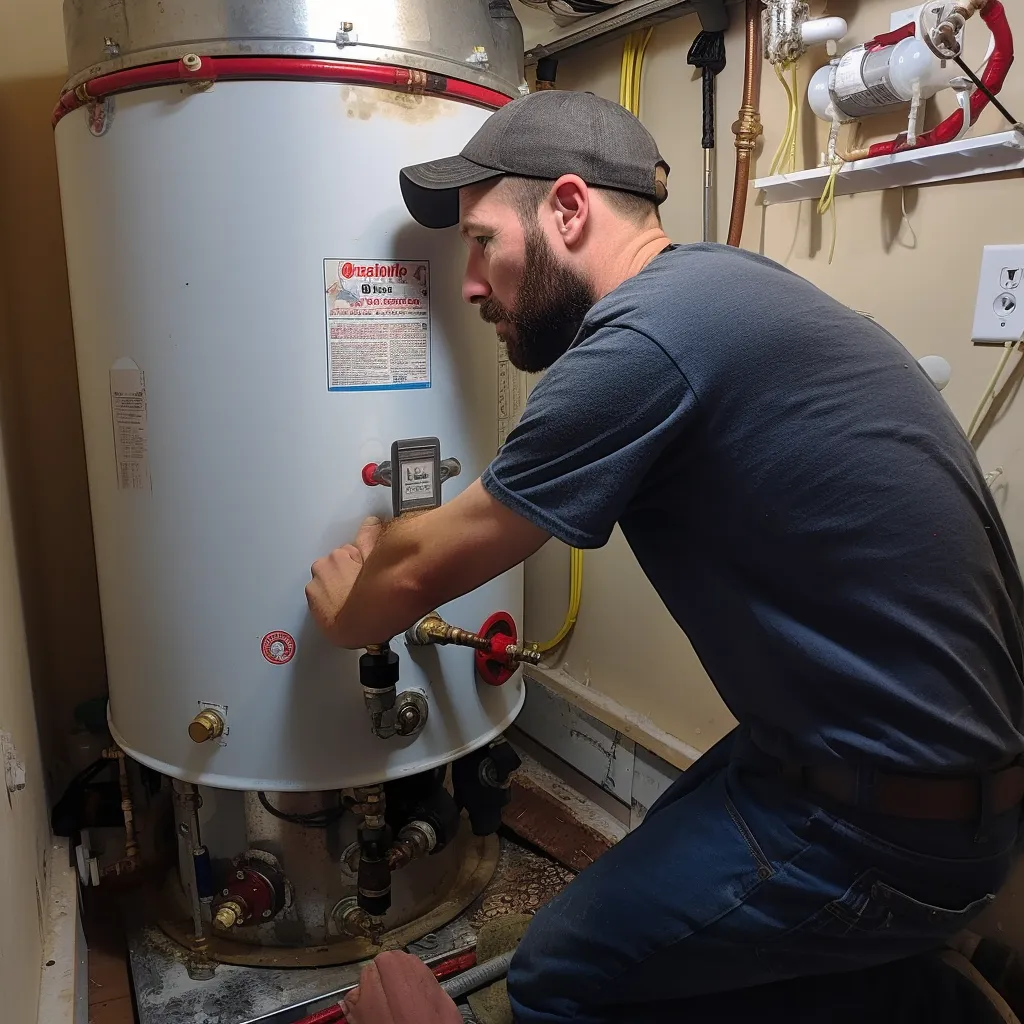
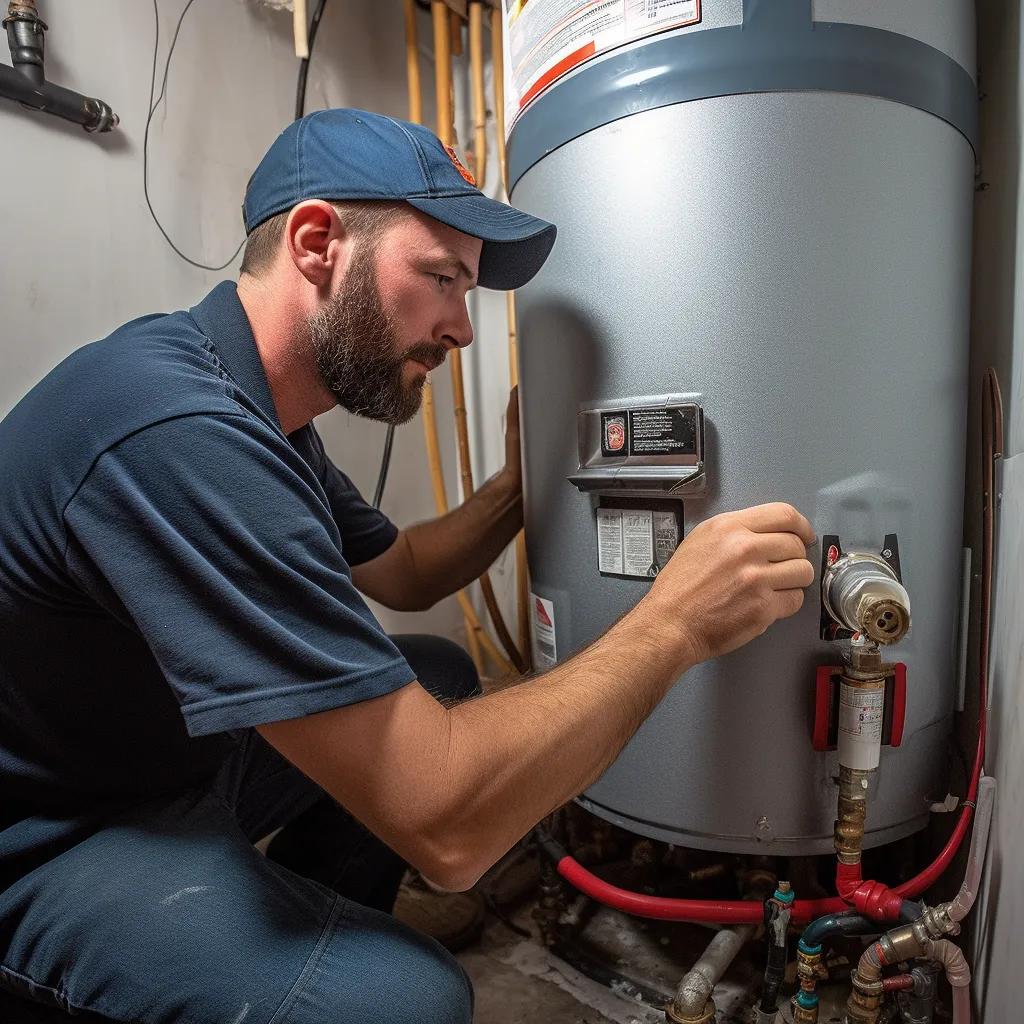
Comparison of gas vs electric water heaters
When it comes to water heaters, homeowners have two primary options: gas or electric water heaters. The choice between the two types depends on several factors such as cost, efficiency, and personal preference. Gas water heaters are powered by natural gas or propane. They work by heating water through a burner located at the bottom of the tank. Gas water heaters tend to be more energy-efficient and can quickly heat large amounts of water. However, they require proper ventilation and a gas supply, which can limit their installation options. Additionally, gas water heaters are generally more expensive upfront and may require occasional maintenance. Electric water heaters, on the other hand, use electric heating elements to heat water. They are easier to install and do not require a gas supply or ventilation. Electric water heaters are typically cheaper upfront compared to gas water heaters. However, they may be less energy-efficient and take longer to heat water compared to gas models. When choosing between gas and electric water heaters, it's essential to consider factors such as available energy sources, installation requirements, efficiency, and budget. Consulting with a professional plumber can help homeowners in Murfreesboro make an informed decision based on their specific needs.
How to choose between tank vs tankless water heater
Deciding between a tankless or a tank water heater for your home can be a crucial decision. There are several factors to consider before making a choice. Let's explore them to help you determine which type is the right fit for you.
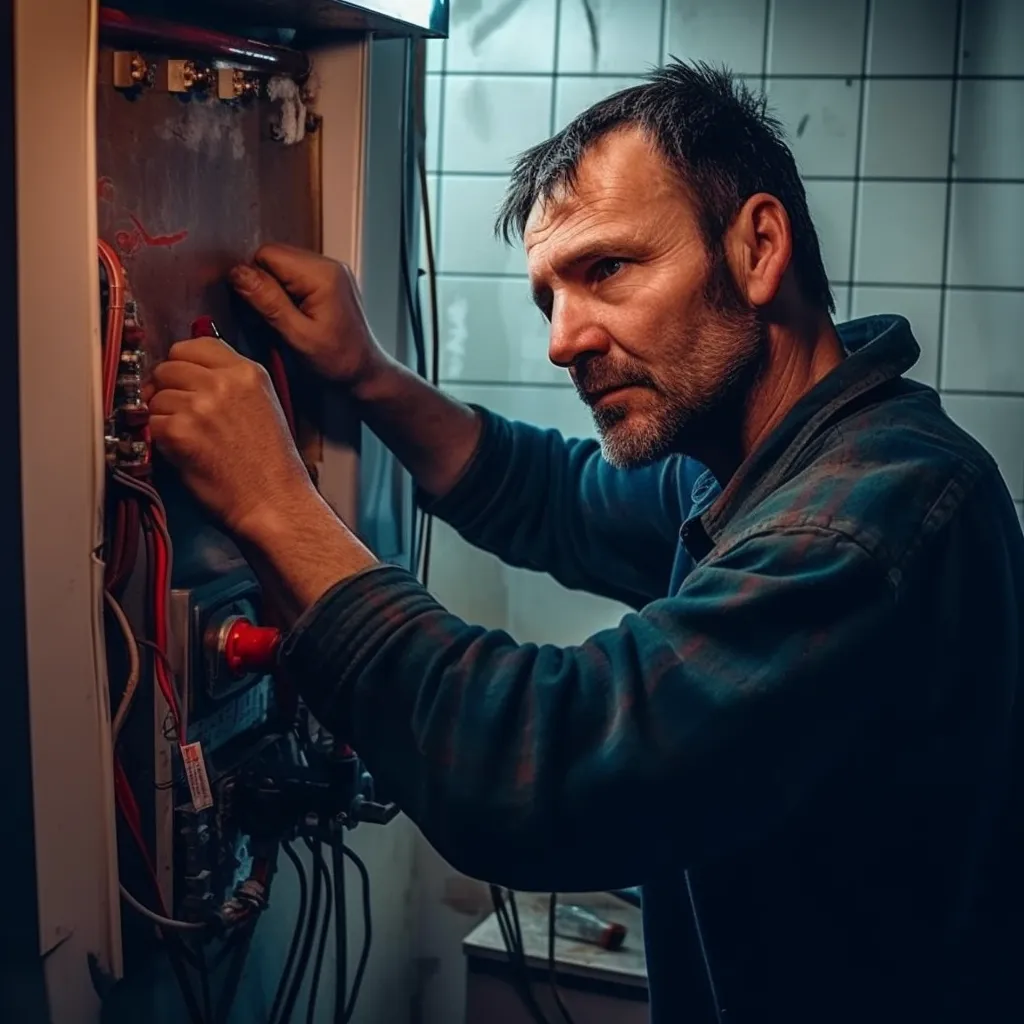
Hot Water Demand: Consider the number of people in your household and their hot water usage patterns. Tankless water heaters provide hot water on demand and are suitable for households with low to moderate hot water requirements. On the other hand, tank water heaters store a specific amount of hot water and are better suited for larger households or those with higher hot water demands.
Energy Efficiency: Tankless water heaters are known for their energy efficiency. They only heat water when needed, reducing energy consumption compared to tank water heaters that constantly heat and store hot water. If energy efficiency is a priority, a tankless water heater may be the better choice.
Space: Tankless water heaters are much smaller in size compared to tank water heaters, which require a substantial amount of space for installation and storage. If you have limited space or prefer a more compact option, a tankless water heater would be a better fit.
Long-Term Costs: While tankless water heaters have a higher upfront cost, they tend to have a longer lifespan than tank water heaters. Additionally, their energy efficiency can result in lower utility bills over time. Tank water heaters have a lower upfront cost but may require more maintenance and have higher energy costs in the long run.
Installation: Tankless water heaters usually require professional installation due to their complex plumbing and gas or electrical connections. Tank water heaters are relatively easier to install and can sometimes be a DIY project. Consider your comfort level with installation complexity and whether you are willing to hire a professional.
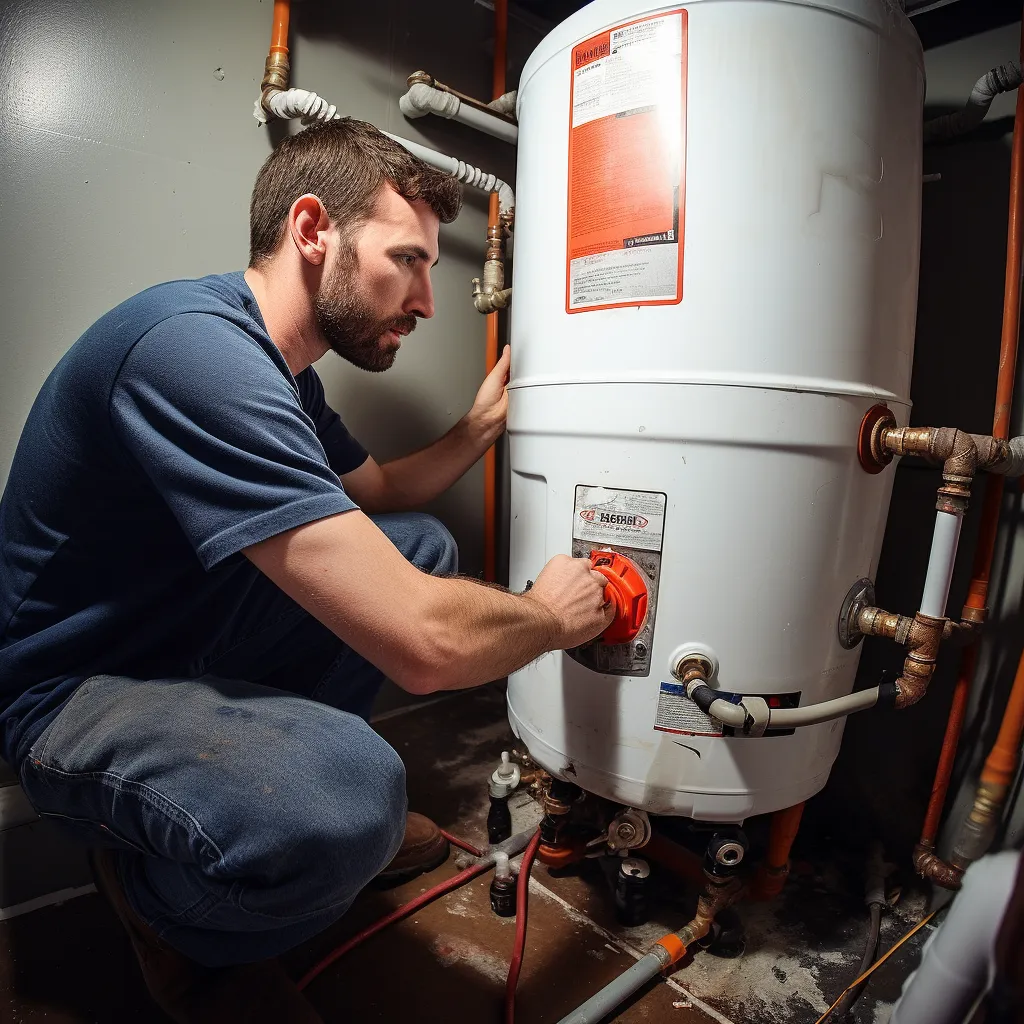
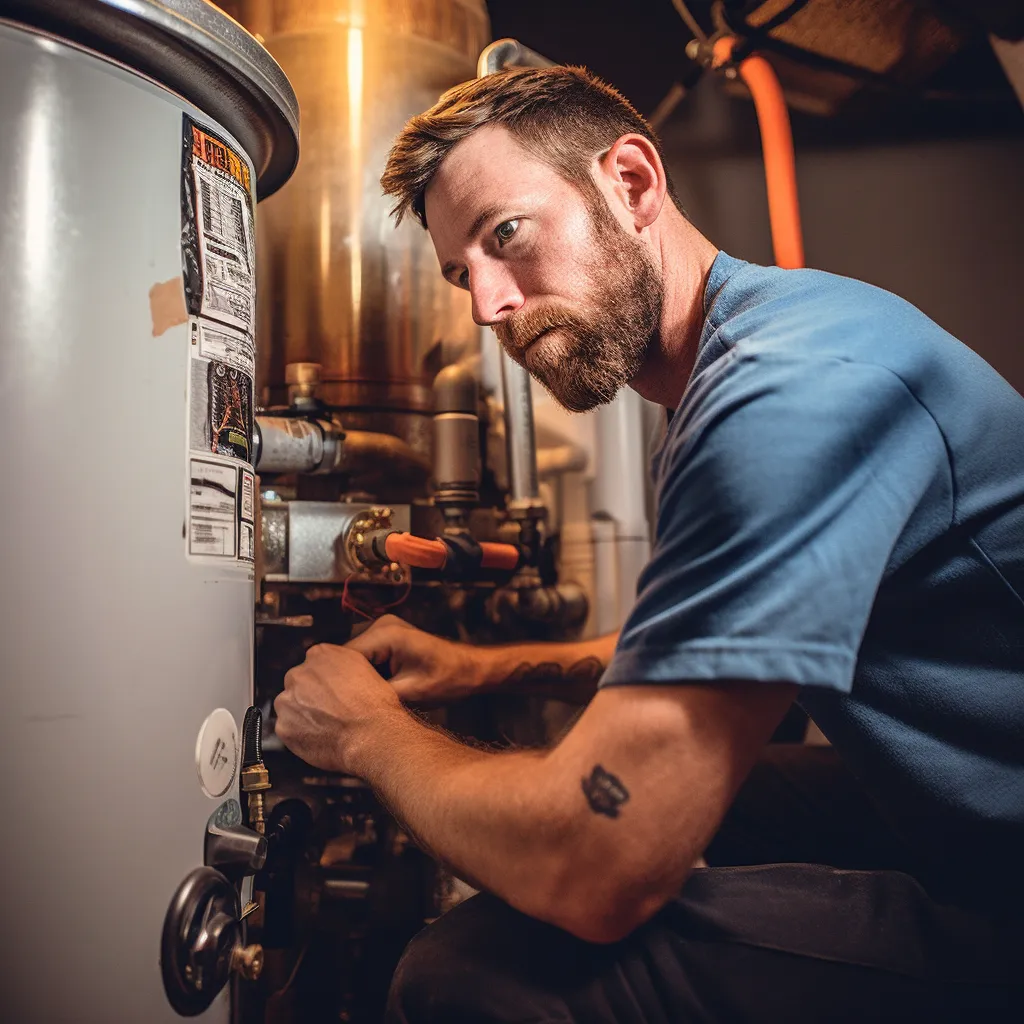
Is it important to hire a water heater professional?
When it comes to water heater replacement, it's crucial to enlist the services of a licensed professional. A skilled plumber can guarantee that the installation complies with building codes and regulations while offering valuable insights into the ideal type and size of water heater for your specific requirements. Employing the services of a professional not only mitigates potential hazards but also grants you the assurance that the installation is executed accurately and safely.

It's crucial to research tankless vs tank options
When searching for a new water heater, there are two main options to consider: tank or tankless models. To ensure you make the right choice for your specific needs, it's essential to thoroughly research and evaluate various factors like your requirements, budget, and installation needs. When installing a new water heater, it can greatly impact your home by reducing energy costs and ensuring hot water whenever you need it. Therefore, it's crucial to research different types of units available and consider their energy efficiency ratings. By doing so, you can make an informed decision that will benefit your home in the long run. Take the time to carefully consider your options and weigh the pros and cons of each type of water heater. This research and evaluation process will enable you to choose the ideal water heater replacement for your Murfreesboro home.
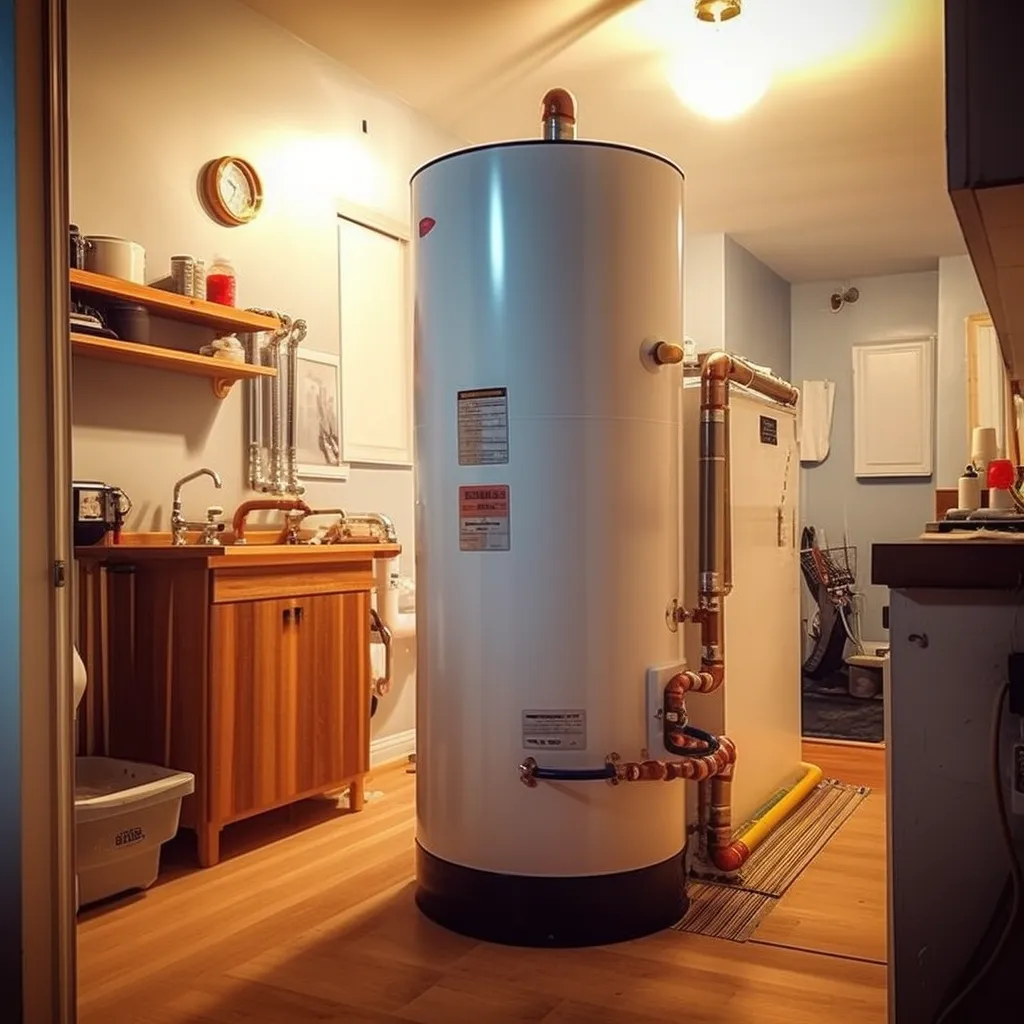
Contact Us
GET IN FULL TOUCH
PHONE: 615-671-4918
EMAIL:
steven@waterheatermurfreesboro.com
Rutherford Plumbing Heating & Cooling
Murfreesboro, TN 37128
